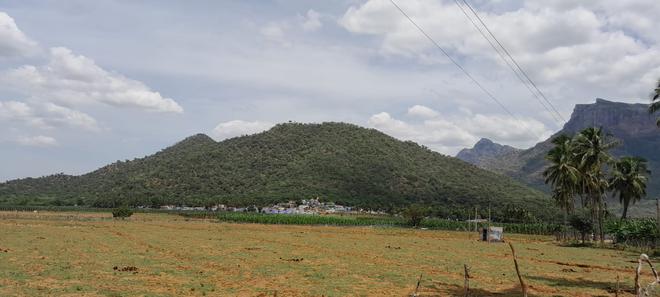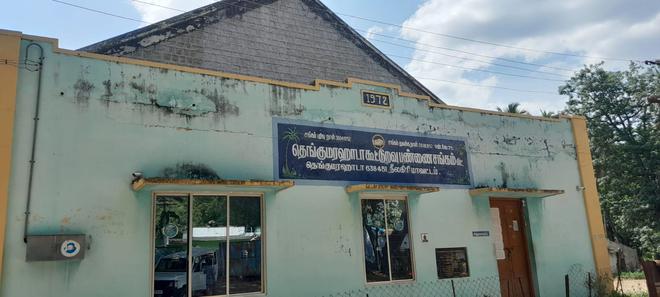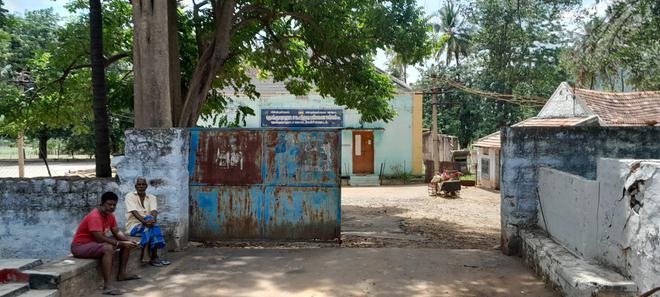When Subramani (name changed), 31, a resident of Thengumarahada in the Nilgiris wanted to register a complaint with the Nilgiris police, he had to travel a distance of more than 100 kilometers, taking an early morning bus, one of only two buses that visit the village, through a circuitous route via Bhavani Sagar in Erode district and Mettupalayam in Coimbatore and finally to the Sholur Mattam police station in the Nilgiris.
For the residents of Thegumarahada village, nestled among the eastern slopes of the buffer zone of the Mudumalai Tiger Reserve (MTR) as well as the Adivasi villagers in the adjoining villages of Kallampalayam, Alli Moyar and Puthukkad, availing of any government service, usually requires long hours of travel to Kotagiri, taking upwards of five hours each way.
“It is for these reasons that we prefer moving out from the village. In addition to the distances we have to negotiate, we also have the daily fears of coming into contact with wildlife such as tigers and elephants,” said Kalamani, 52, another resident of Thegumarahada, which is home to a wide variety of wildlife, including over 30 tigers, say officials. Ms. Kalamani said that her daughter, in her mid-20s, only studied up to class 12 and couldn’t go to college because of the remoteness of the village.
The Madras High Court recently ordered that the residents of the village of Thegumarahada, comprising around 497 families, be moved out to ensure the protection of the area, one of the most important and biodiverse landscapes in the Nilgiris.
Biodiverse landscape, home to endangered species

S. Bharathidasan, secretary of Arulagam, a conservation NGO that has been extensively working in the region, primarily for the protection of critically-endangered vulture species, said that the region was home to the quickly-disappearing striped hyena, of which there are believed to be only around 30 individuals left in the entire Nilgiris, as well as sloth bears and endemic fish species, including the critically-endangered hump-backed mahseer (Tor remadevii), crocodiles, otters and vultures.
“Though we are yet to confirm it, it is widely believed that the areas surrounding Thengumarahada host the only nesting site of the Asian king vulture, which is also critically endangered, while the nesting sites of the long-billed vulture are all found in the Nilgiris eastern slopes, where the village is located,” said Mr. Bharathidasan.
R. Gopal, 65, whose father came to the village as a labourer just after the construction of the Bhavani Sagar Dam, said that most residents are willing to move out of the village. “We have no land here, and it is extremely difficult to access even the most basic facilities. Most of the people here are laborers or cultivate land sub-leased from the original members of the Thengumarahada Co-operative Farming Society,” he said.
Co-operative society

According to S. Sadhasivam, a descendant of one of the 141 original members of the society, and one of the few refusing to move out, his family has been living in the village since 1931. “After Independence, the government provided around 100 acres of land to be collectively farmed, and to grow paddy. Later, 500 acres of forest land was leased to the society,” he said, adding that the descendants of the original members were reluctant to vacate Thengumarada. “We are all farmers who know no other vocation. We fear that we will not find jobs and will be forced to work as daily wage workers in mills and factories. No one can force us to leave,” said Mr. Sadhasivam.
Under the terms of the lease, the government could take back the land “in case of failure to use the land effectively.” However, senior Forest Department officials say that only around 30 of the original members of the co-operative society are still alive, with less than 10 families still residing in the village, most others having moved out or having leased their land to laborers and “outsiders” from the surrounding areas looking to eke out a living through subsistence farming.
Adivasi families to remain
The families are to receive a payment of ₹15 lakh in exchange for vacating the village, which is also home to 20 Adivasi families, who will not be relocated.
K. Rudran, a member of the Irula Adivasi community, and the village head of Puthukkad, said that the Adivasi residents feared that when Thengumarahad village is vacated, the local Primary Health Center and government high school will be closed down. “Our only appeal is that these few basic facilities, which the Adivasi communities have become reliant upon, are not shut down, as Adivasi communities from both Alli Moyar and Kallampalayam also use them,” he said.
S. Sinraj, 25, an Adivasi youth who runs a coracle service that helps people cross the perilous Moyar River at the Kallampalayam crossing, said that the Adivasi communities welcomed the move to relocate residents of Thengumarahada. “The presence of such huge numbers of people results in huge quantities of litter, in the form of broken liquor bottles becoming strewn in the area, putting animals at risk of injury,” said Mr. Sinraj.
He said that due to the economic disparities between the region’s Adivasi and non-Adivasi populations, members of his community were also being exploited for financial gain. “As there is no liquor shop located in the area, Thengumarahada villagers, who are better off, racketeer alcohol, purchasing large quantities at the nearest liquor shop and selling them for huge profits,” he alleged.
R. Rami, 80, another resident of Kallampalayam, said that the Adivasi community was content from gathering forest produce, including honey, yam, tamarind and fruits from the forest, and selling them to a committee that manages Minor Forest Produce. “Our only demand from the government is to extend the bus service to Kallampalayam, as we have to walk several kilometres to the nearest junction where the buses come to,” said Ms. Rami.
Hope for the future

Kalamani, who said that rearing cattle and farming was becoming unviable due to cattle-lifting by tigers and crop-raiding by elephants, said that she was excited to start a new life, closer to the comforts of the city. “Of course there is some trepidation, but most of us welcome the High Court’s orders. We only hope that we receive the payment promised to us so that we can start afresh in our new homes,” she said.
Antony Rubin, member, State Board for Wildlife, Tamil Nadu, said that the eastern slopes of the Nilgiris, encompassing Thengumarahada as well as Sigur, should be declared a wildlife sanctuary to ensure better protection of the native flora and fauna found in the region. Mr. Rubin said that such a declaration will also help the Forest Department in procuring funds for fighting the spread of invasive species such as Prosopis juliflora which have taken over large swathes of the region.







